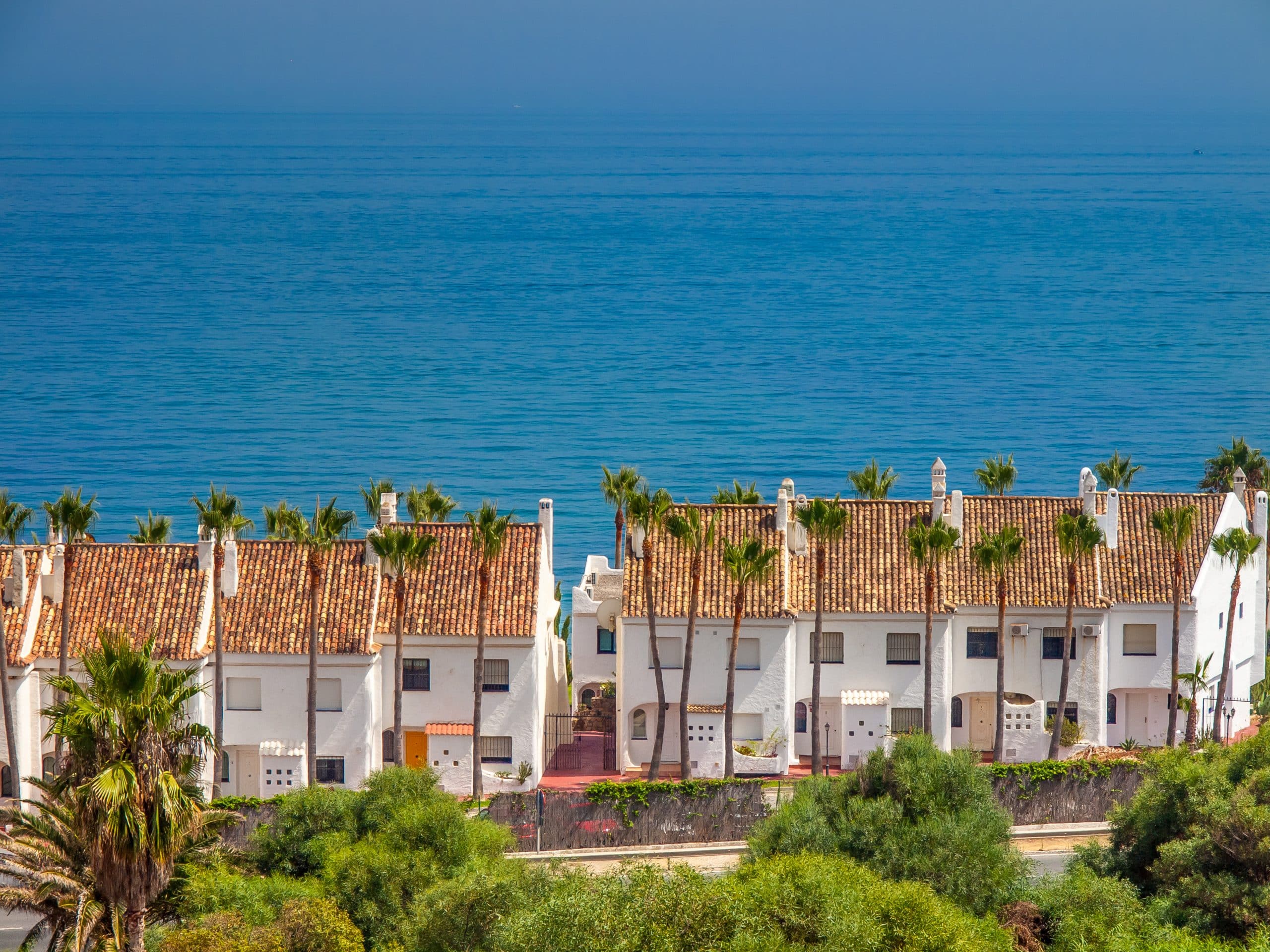Can I Still Move Or Retire To Spain?

Written by Nigel Ayres, CEO of Expat Network
Spain with its average of around 300 days of sunshine a year is the most popular destination for Brits looking for a new lifestyle. The combination of Brexit and Covid-19 delayed many people who wanted to make the move, but is it still possible to move or retire to Spain? Here we set out how to achieve the move.
Brexit Transition Period
The first thing to understand is the arrangements during the transition period and what changed on 31st December 2020 for British citizens hoping to enjoy their retirement in the sun in Spain.
The EU Withdrawal Agreement establishes the transition period through to the end of 2020. Under this agreement Brits continued to enjoy the rights as if the UK was still a member of the EU. Anyone who established legal residence in Spain before the end of the year retains the right to remain resident in Spain and can apply for permanent residence after five years. The agreement states that although you need to be resident in Spain by 31st December, you have until 30th June 2021 to apply for residence. It also states that once you have this temporary residence the right to stay cannot be taken away due to temporary absence from the country and that only continuous absence for five years would prevent you from applying for permanent residence.
EU countries were free to choose their registration systems, but the system chosen by Spain means that Brits already in Spain do not need to reapply for their legal status. The ‘tarjeta de identidad de extranjero’ (TIE) will replace the current documentation for British residents. The TIE is issued to foreigners authorised to stay in Spain for longer than six months and proves your legal status. Brits who register for the first time will be issued with a TIE and those holding existing residency documents will be able to swap these for the TIE.
In an article in The Local, Spain, Sue Wilson, Chair of Bremain in Spain quotes the British Ambassador as saying:
“I know that, because of the suspension of residency appointments during the current state of emergency, many UK nationals are concerned about their ability to obtain the correct documentation before 31 December. I want to reassure people on two points. If you already have the green residency certificate, your core rights are protected and it remains a valid document, even after the end of the transition period.”
“If you don’t yet have your green residency certificate there is, likewise, no need for alarm. We continue to advise people to get an appointment as soon as you can. However, as long as you are living in Spain and can prove that you satisfy the legal conditions of residence (i.e. sufficient income and access to healthcare) by 31 December 2020, your rights are assured even if you are not able to get the physical document before the end of the year.”
So if you wanted to move to Spain and retain your rights to remain without having to go through what are likely to be more onerous requirements if you move after the end of the transition period, you needed to move to Spain to establish residence before the end of the year, but have not yet applied for residence you need to do so before 30th June 2021 (the sooner the better). There is no clarity on what the Spanish authorities will accept as proof that you were ‘lawfully resident’ in Spain by 31st December and so the sooner you apply the better and you will need to gather all the evidence you can to prove that you were ‘lawfully resident’ by 31st December 2020.
How Do I Find Out What Is Going On?
Getting information from those who already live in Spain is one of the most appropriate sources of information on what it like to live in Spain and what is happening there. Facebook has a number of groups for expats in Spain or in specific parts of Spain. Organisers of these groups are often very experienced and knowledgeable about life in Spain and seek to provide information about what life is like in Spain and to give expats the opportunity to exchange views, have their questions answered and get recommendations about available services, restaurants, bars etc.
These can be a great source of information and views on the attractions of different areas, what the lifestyle is like and generally getting a feel for the potential life in Spain.
What is apparent if you visit these groups, however, is that if you ask technical questions the information is often unreliable and contradictory. Many expats seem, especially during the Covid-19 lockdown, to have an enormous amount of time on their hands and post extensively to these groups (keyboard warriors). A question will generally get a series of answers with one confident post being instantly dismissed and contradicted by the next post. These often seem to deteriorate into abusive exchanges and it is generally impossible to be certain who is providing accurate advice. One way is to ensure that you ensure the person providing the advice/opinion provides the official source of the information.
There are some very good organisations and one of the most regularly recommended is Citizens Advice Bureau Spain who provide reliable legal advice on Brexit, Covid-19, residence and other issues. You can either go to their site or join their Facebook group.
How Do You Establish Legal Residence in Spain?
There is a common misconception that in order to qualify for residence you have to buy a property, but this is not the case. You can rent or buy but will need to be resident in Spain by the end of the year. You will then need to obtain an NIE (Numero de Identificacion de Extranjero) and register on the Padron before applying for residence. Under the Brexit Withdrawal Agreement you have to be legally resident by 31st December, but have until 30th June 2021 to apply. The safe option will be to apply for an appointment as soon as possible, however.
If you are not seeking employment you will need proof that you have adequate finances and medical insurance.
You can see details on how to apply for residence in our article I Want to Retire To Spain – Should I Make the Move Now?
What If I Have Missed The Deadline?
If you did not manage to move to Spain by the end of 2020 this doe not mean you cannot move or retire here. It simply means that you will be subject to different rules. The Visa options for Non-EU Citizens to live, work or retire in Spain will be available to UK citizens even if no new arrangements are agreed to give UK citizens other options. This will add complexity and mean there are more formailities to moving to Spain.
- Non-Lucrative Visa – If you are looking to retire to Spain you will probably need to use the Non Lucrative Visa. This allows you to retire there but you will not be able to work or run a business in Spain. It also means that you will have to be able to demonstrate your financial independence with a more onerous requirement than for EU citizens. See – Spain’s Non-Lucrative Visa: A Good Option For Those Retiring To Spain.
- Golden Visa – Other options for those with enough money will be Spain’s Golden Visa. Minimum investment requirements are €500,000 in property, €2 million in public debt or €1 million in shares or bank deposits. To qualify you must be a non-EU citizen over 18 years of age, with no criminal record. You must have private health insurance and must demonstrate that you have sufficient funds to support yourself and your family in Spain. Processing is rapid with reports of between one and two months.
- Work Permit – You cannot apply for a work permit as the application has to be made by your employer. Provided the job is listed as a difficult to cover occupation or if the vacancy has been advertised and no suitable candidates from Spain or the EU have been identified, the permit is likely to be granted. Once the work authorization has been granted you can apply for a visa.
- Highly Skilled Professionals Visa – If you have a job offer as a highly skilled worker or you are a graduate/postgraduate from a university or prestigious business school you may qualify for a Highly Skilled Professional Visa.
- Entrepreneur’s Visa – You can obtain an Entrepreneur’s Visa if you are starting up an innovative business of particular economic interest to Spain. There is no specific minimum capital requirements nor a specific number of jobs that should be created and each is assessed on an individual basis.
